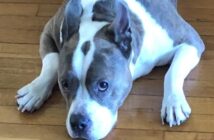BY , RN, CCM, MUP
Welcome to a new column that will feature articles that focusing on Caring for YOU—our readers. In this issue we look at retirement from three leaders in the industry. We hope their works help you as, regardless of your age, we all need to prepare for retirement!
Retirement comes with a myriad of expectations, both positive and negative. For some, it’s an opportunity, for others a loss of identity. I spent 40 years of my life employed full time in acute care hospitals. I remember thinking, about 10 years before I retired, “If I’m no longer the director of case management, who am I?” My identity was so tied into my career, I couldn’t think beyond it. Yes, I wanted time for myself; I wanted to sleep late, go to the supermarket during the week when it wasn’t crowded and travel when I wanted without asking permission for time off, but those were moments in a life, not the life itself.
My employer at that time was offering the opportunity of working with an executive coach through human resources. Not one to jump into things precipitously, I read up on it, called HR for more information and batted it back and forth for over a year before committing. It was eye opening; it was not solely focused on my job. We talked about my goals, future plans and what my coach referred to as my second act. She also talked to me about my “brand,” a completely foreign concept. Who am I, what do I represent, what am I offering, what can I do, and what do I want to do? The experience was all about ME. I am a nurse, a wife and mother, a sister and a friend. She wanted me to think about myself in a different way, not in relationship to others.
The coaching process opened my eyes to possibilities that I hadn’t previously considered. I became more involved in my profession outside of my immediate work world. I’d been a member of CMSA for several years but did not actively participate in the organization. It was time to become more involved in CMSA and in the evolving profession of case management. Challenging myself started with submitting abstracts to speak at conferences and writing articles about my program and other aspects of CM. I went from being a tentative, anxious public speaker to one who enjoyed and even reveled in the experience. I set a goal of speaking at least once a year and publishing at least one article. I joined the board of directors of my local chapter.
I began to focus on myself in other ways, joining a gym and working with a personal trainer. Then I applied to ShapeUP NYC to become a volunteer fitness instructor. ShapeUP is a program that provides free exercise classes in underserved areas of the city to promote exercise, nutrition and better overall health. Acceptance meant 6 months of training and committing to teaching a group fitness class once per week for 6 months. I taught at a senior center for 4 years. I was keeping myself and others fit and addressing a social determinant of health.
The year before I retired, I started teaching a prep class for CM certification. Anne Llewelyn introduced me to Deanna Gillingham, whose company needed another instructor for this ongoing course. Teaching keeps me relevant in the profession and busy in retirement, teaching case managers, group fitness, exploring other outlets like creative writing and having more time for myself.
Self-awareness followed. I wasn’t a fraud or just lucky to be in the right place at the right time. I began to recognize the reality of my skills and achievements and to establish myself as a subject matter expert. There was a life beyond my present position and a person in that life with value to herself and her community and profession.
I had run a department with over 70 people. As I got closer to retirement, I checked off a series of lasts. My last budget submission and defense. My last variance report. The last round of performance appraisals. No tears were shed as I ended an era of endless administrative tasks.
Since retiring, I work occasionally as a patient advocate accompanying patients to physician’s appointments. Helping them frame questions and understand their condition so they can make informed decisions is rewarding. They value my presence and my expertise, and I feel great knowing I am making a difference. Teaching the certification prep course keeps me on my toes professionally; I need to keep up with changes in the healthcare industry and in case management. It is also gratifying; hearing from people when they pass, receiving comments after a session when I have made something previously incomprehensible, easy to understand.
For many people, retirement means leisure, and I have that, but to me it is also about doing things I enjoy — both professionally and personally. I still interact with colleagues. I continue to learn from them and to add to my knowledge of the changing healthcare environment. I have taken what I like most about my case management work and eliminated what did not add value to my enjoyment or sense of accomplishment. Retirement isn’t an end; it’s a transition, an opportunity, another stage in the process of living.




